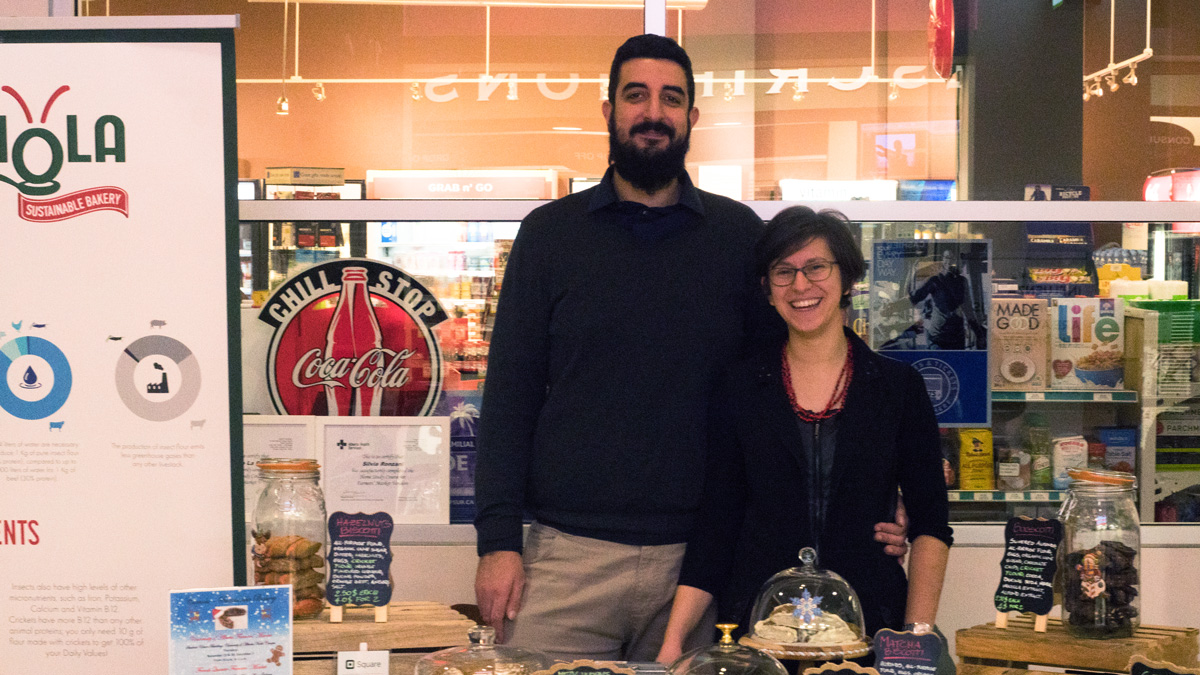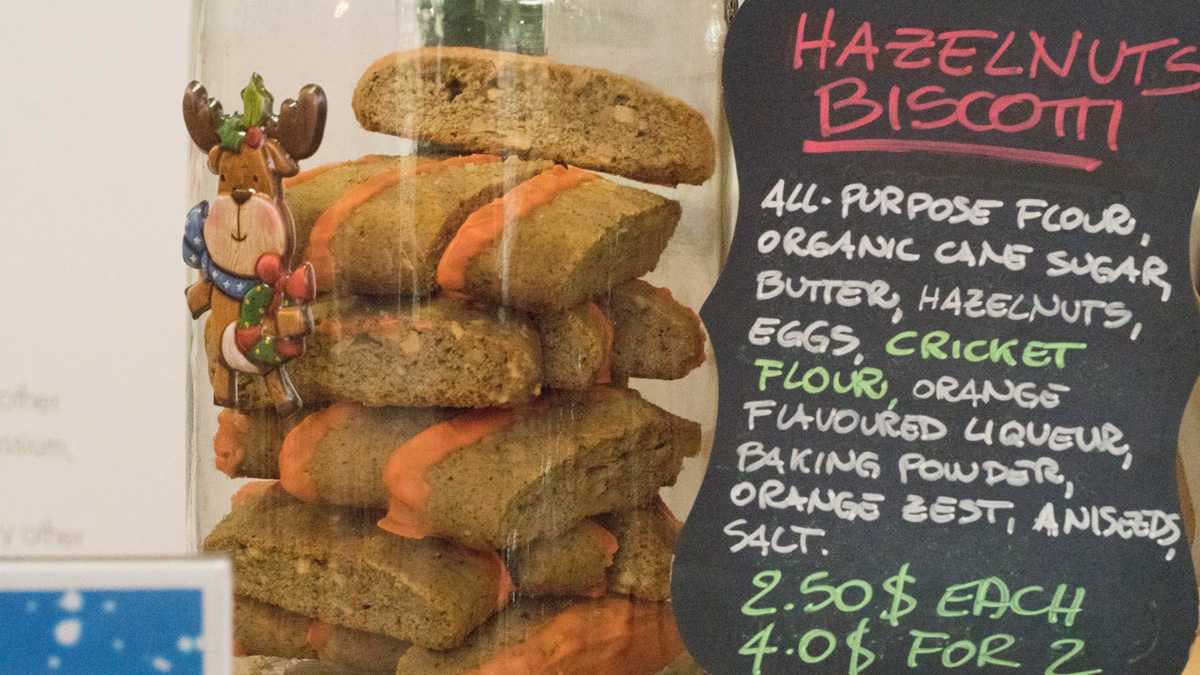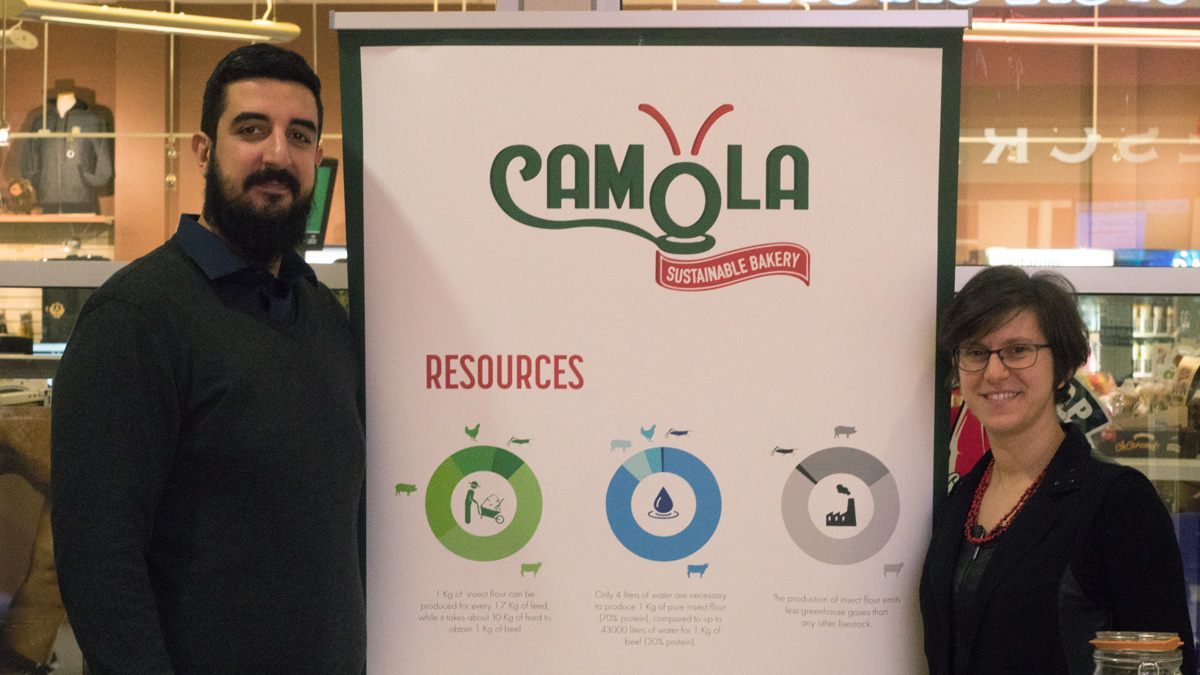Insect flour bakery a hit at SUB Farmer’s Market
 Richard Bagan
Richard BaganCamola Bakery specializes in baked goods inspired by traditional Italian recipes — with a twist. All of their treats contain insect flour.
The bakery is run by baker Silvia Ronzani and CEO Claudio La Rocca, and has been a part of the University of Alberta Farmer’s Market in the Students’ Union Building since September. Ronzani and La Rocca claim that the mealworm and cricket flour they use in their baking provides protein and essential nutrients such as iron, calcium, potassium, vitamin B12, Omega 3, and Omega 6. Not only are they supposed to be nutritious, but better for the environment as well.
“We use these ingredients to promote the sustainability of insects as a food product, and to enhance the taste of our product,” La Rocca said.

La Rocca and Ronzani have been a part of entomological and environmental research for 10 and eight years respectively. They got the idea to start an insect bakery after trying edible insects. The uniqueness of the idea had them hooked, and they wanted to try and bring a new way of eating insects to the market.
“Being Italian, we like to cook, so we decided to basically incorporate the protein itself into other food items.” La Rocca said.
Ronzani and La Rocca decided to sell their products, such as “bugscotti”, granola bars, and sourdough buns, at the SUB Farmers’ Market and the French Quarter Farmers’ Market, and have been successful in gaining students’ interest.
“We decided (to sell here at the university) because they accepted us, and also because we thought, and it’s still the case, people here being students and younger are more open to ideas,” La Rocca said. “They would be more accepting of our products.”
Most people who pass by show interest in what Camola Bakery does, and may even be willing to try the products. La Rocca said some people have already heard of insects in food products and are very open to the idea.
“It’s just the minority of people that don’t even bother asking more questions,” La Rocca said. “We do a little bit of education every time a customer comes, we explain what we’re doing and why.”
Ronzani and La Rocca also promote insect flour as a more sustainable protein. Cows in agriculture use up to 43,000 litres of water per one kilogram of beef products. In contrast, insects require only four litres of water to make one kilogram of flour, according to Camola Bakery.
“Why don’t we try to introduce another food ingredient that is almost pure protein, is high in nutrients, and is very sustainable?” La Rocca said. “This way we can basically lower the impact from other sources of protein, and other food items.”

Besides using fewer resources, Camola Bakery claims crickets also provide more protein per 100 grams than meat products.
While insect products in food may seem like a new idea, La Rocca said companies have been selling insect protein products for a few years already, and that North America and Europe are the few places in the world that don’t eat insects regularly.
“About two billion people eat insects every day, and 80 per cent of the land mass basically has populations that eat insects every day,” La Rocca said. “So it’s a relatively new idea for few places in the world.”
Insect flour could also be a solution for malnourishment, La Rocca said. Some places around the world have trouble keeping livestock due to climate, or suffer from lack of food due to natural disasters. Even in Edmonton, people who don’t have access to nutritious food could benefit from insect flour, which lasts for years after it’s prepared.
While Canadians don’t often think of insects as being an important part of their diet, Ronzani and La Rocca hope to change that.
“It’s a fascinating topic, and besides being entomologists, and being into natural sciences, and environmental protection, we know why we got into this. We know what is the cost of food, and how much we are impacting the environment with our eating habits,” La Rocca said. “That’s another reason why we started this.”




